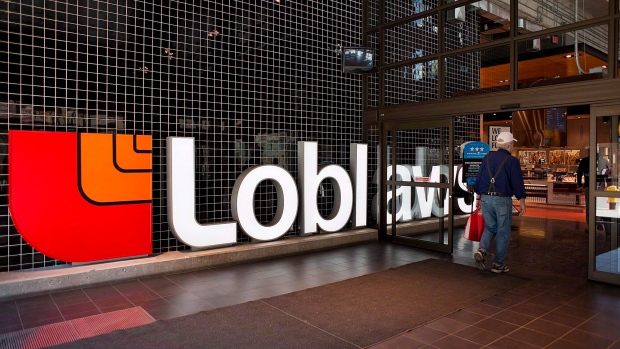Jul 26, 2017
Loblaw expects higher minimum wage rules to hurt profits
The Canadian Press

BRAMPTON, Ont. -- Loblaw Companies Ltd. (L.TO) says minimum wage increases in Ontario and Alberta and health care reform in Quebec are expected to hurt its bottom line.
The grocery and drug store operator says the minimum wage increases announced in Ontario and Alberta are expected to increase its labour expenses by about $190 million in 2018.
Loblaw also says changes in Quebec are expected to have a more significant incremental impact in 2018 than in prior years.
"We’re facing significant incremental costs that will require us to look at every one of our cost levers," Kevin Groh, vice president of corporate affairs and communications at Loblaw, told BNN via email Wednesday. "At the same time, we’re very committed to our strategy and continue to invest in important growth areas like e-commerce."
Bolstering the e-commerce platform could help build a wider moat for the grocer, as the specter of Amazon hangs over the space in the wake of the online retail giant’s proposed US$13.7-billion acquisition of Whole Foods. On the second-quarter earnings conference call, Loblaw Chief Executive Officer Galen Weston acknowledged the threat posed by so-called omni-channel retailers, but said the company’s experience competing with Wal-Mart was good preparation for meeting such competition head-on.
“We certainly have, in our own analysis, drawn comparisons between [Wal-Mart’s push into groceries and] this very different and very compelling threat that omni-channel, and particularly Amazon, represent to Canada,” Weston said Wednesday.
“There’s been lot of speculation about retailers of one sort or another over the years sort of taking over the world; that hasn’t happened yet. And that’s not because these formats or these concepts are not incredibly powerful and incredibly innovative. It’s because the retailers who are facing those threats respond. They make strategic changes, they take costs out of their business, they change the way they meet customer demand, and you should expect us to do similar things.
The company made the comments as it reported a second-quarter profit attributable to shareholders of $358 million or 89 cents per diluted share. That compared with a profit of $158 million or 39 cents per diluted share a year ago.
Revenue for the quarter ended June 17 amounted to nearly $11.08 billion, up from $10.73 billion in the same quarter last year.
In addition to its grocery business, Loblaw owns the Shoppers Drug Mart chain, as well as the Joe Fresh clothing business, PC Financial personal banking and a stake in the Choice Properties real estate investment trust.
- With files from BNN




